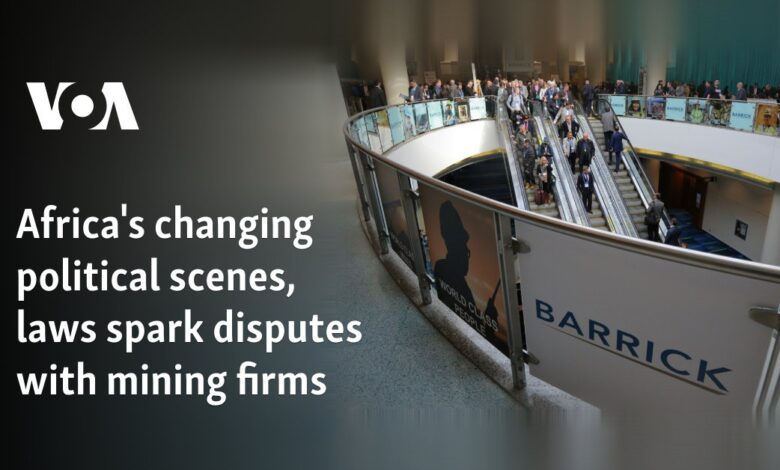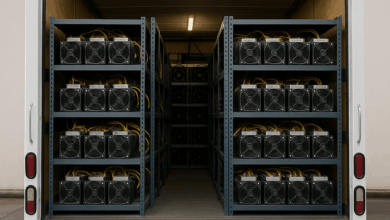The changing political landscape in Africa, and laws raise disputes with mining companies

The mining sector in Africa is witnessing an escalation in legal disputes in the Sahel and Central Africa, as mining companies face increasing scrutiny in the countries in which they operate. Disputes stem from tax and customs audits, lack of experience in finance management, arbitration, and changing legislation in some countries.
Barrick Gold officials said in a statement on Wednesday that its entities operating in Mali have submitted a request for arbitration to the International Center for Settlement of Investment Disputes (ICSID) to address the dispute with the Malian government over the Loulou-Gonkoto complex.
Barrick, the world’s second-largest gold miner, has been locked in a dispute with Mali’s military government over new mining rules since 2023.
The new rules seek to give the state and local private investors a 35 percent interest in mining projects, up from 20 percent.
International arbitration registered cases in six sub-Saharan countries this year: Angola, the Democratic Republic of the Congo, Mozambique, Senegal, South Sudan and Tanzania.
Of the cases brought by investors and states, 28 percent were in the oil, gas and mining sectors, the highest.
Beverly Ochieng is a Senior Analyst at Control Risks, a political, security and integrity risk firm. She says that closed countries and mining rights cause authorities to conflict with mining companies.
“Across the continent, there has been this greater trend towards resource nationalism where countries feel that because they are the largest stakeholder in those resources, whether it’s gold or zinc or uranium, they have to legislate or update their legislation to make sure that the government gains more.” “This has not led to conflicts in other countries quite as publicly as it has in Mali, but it does raise some concerns about how this transformation will happen,” Ochieng said.
Mining experts say that political instability, especially in countries such as Burkina Faso, Mali and Niger, and changes in mining laws and alliances, have affected companies that have been mining in those countries for decades.
Some countries have closed mining sites due to alleged environmental damage and failure to remit taxes to the government.
Conflicts between companies and states arise due to changes in government, insecurity, political instability, tax evasion, tribal authority, and environmental and social issues.
Paul Ogende studies law at the University of Nairobi. He says strong governance and the rule of law are crucial to effectively resolve disputes and prevent conflict and suffering.
“We need to have a functioning governance structure so that the judiciary and other arbitration or other dispute resolution mechanisms can function,” he said. “If we do not have strong governance and institutions, especially operating under the rule of law, it will be worse.” It is a waste of time to go to court or any other forum to arbitrate or resolve your dispute because the players will ignore it and continue to destabilize the region and this will continue to cause conflict and suffering to the people.
Geopolitical tensions also affect the decisions of some African countries to refuse or cancel the licenses of some companies and grant them to their new friends, such as China and Russia.
Ochieng says African countries are working to diversify their partnerships, while Western operators face regulatory challenges as new players reshape the landscape.
“It also allows African countries to diversify their partners and enhance their own resources,” he said. “It will take a very long time for that to happen, but it is not necessarily the biggest threat to Western operators.” For Western operators, it’s a question of compliance and making sure that they have an understanding of how these governments, and different governments, have the different compliance factors that they have to adhere to. The emergence of a new place will certainly change that environment, and will be viewed as an opportunity or a threat depending on who is evaluating it.
The International Center for Settlement of Investment Disputes says 88 cases were completed in 2024. Of these, 71 percent were settled by the court, and 29 percent were settled or the proceedings were stayed. This year, Tanzania reached an agreement with Canada’s Montero Mining and Exploration Limited over a licensing dispute and agreed to pay $27 million.
https://gdb.voanews.com/CFBBD8F9-A6B0-4953-AC4B-69F1BB660600.jpg




